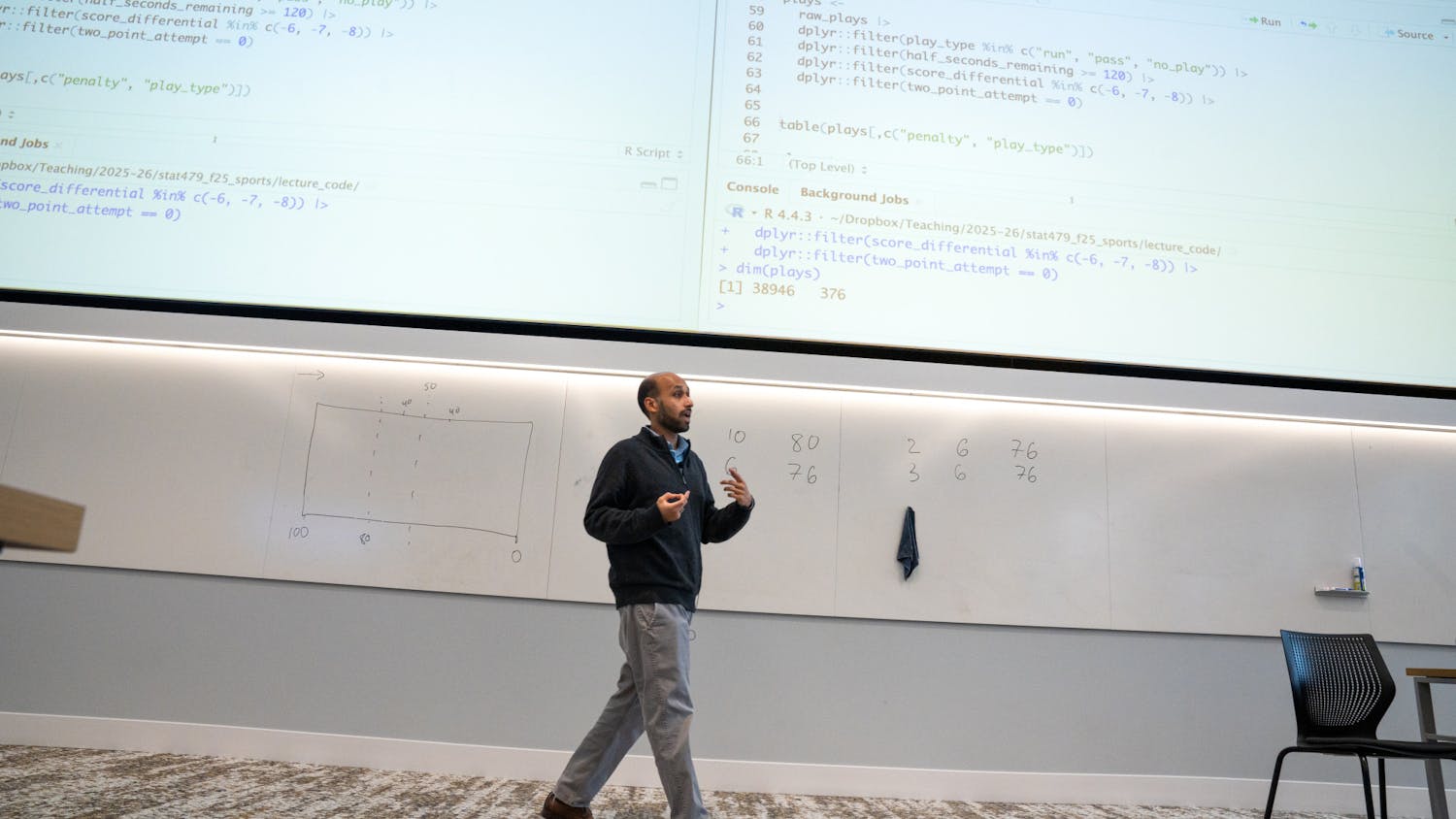On Nov. 21, the Daily Cardinal Editorial Board declared, 'TAA Surrenders.' They made serious factual errors, and the TAA would like to set the record straight: In the 2003-2007 tentative agreement, TAA members have made real gains, despite a tough political and economic climate. The Editorial Board's opinion is out of touch with UW-Madison's workers and students and the economic realities of the state budget.
The Board asserted that the TAA's April 2004 walkout and the larger struggle itself were about 'wage increases without health care premiums.' They were not. The entire contract struggle was about making the state bargain in good faith with the union, and making sure that no TAA member suffered a pay cut as a result of health insurance premiums.
Well before members voted to hold a two-day walkout, the TAA bargaining team offered to accept the state's health insurance premium demands in exchange for real market wage increases. Regrettably, state negotiators refused to make real movement on wages or premiums at that time and instead continued to make offers that would have resulted in pay cuts. It is precisely because of members' persistence and activism that this circumstance changed and that no one will suffer a pay cut under the recent tentative agreement.
The average raise is 9.94 percent over four years for the TAA. Compare this to only 6 percent offered to non-union state employees over the same period. This is a solid raise, given the current political climate and economy. It also makes real strides toward remedying the fact that UW's pay rates for TAs and PAs have fallen to 10 percent below the median of Big Ten schools, hurting UW's efforts to recruit and retain the best graduate students. The 2003-07 agreement helps keep UW competitive.
Last, but not least, the editorial board seems to believe that TAA members' dues payments will wipe out any 'significant' wage gains in the tentative agreement. They will not. The raises are higher and the insurance premiums are lower than those given to non-union state employees. Along with these better rates, no TA or PA has had to pay premiums for two and a half years, and no one will be billed for retroactive premiums.
So a 10 percent wage increase versus a 6 percent increase, no premiums versus higher premiums paid by non-union workers for over two and a half years. That is the union difference. Equally important, TAA members have accomplished all this while sustaining an organization that will continue to hold the line in these lean economic times, work for progressive change and stand ready to make real gains when the state's political climate and economy allow. The state cannot arbitrarily lower members' wages or impose higher fees, and this is a benefit that no non-union employee enjoys.
The state budget is an ongoing problem: the entire UW System has suffered tremendous funding cuts and has consequently seen outrageous tuition increases. Despite this unfavorable economic climate, the TAA's tentative agreement achieves exactly the kinds of things that unions should be fighting for in such tough economic times. It protects members' wages and limits insurance costs, makes modest gains where possible and builds an organization that will be able to continue the fight. That is what the TAA, as a body of concerned and active UW workers, has done for the past several years and will continue to do in future campaigns.





